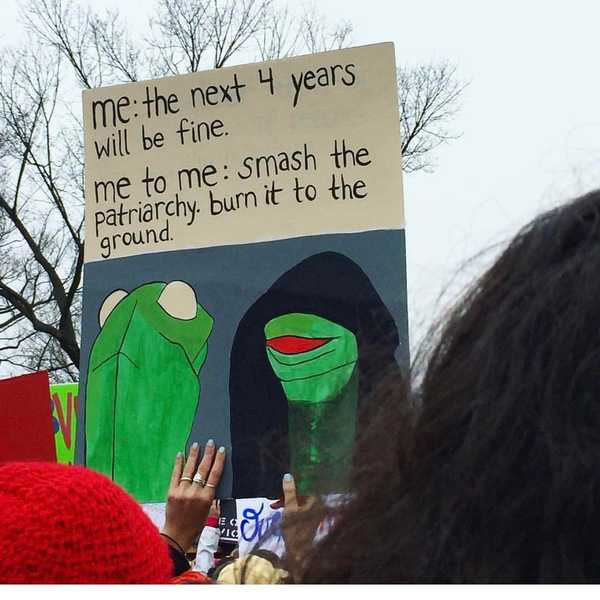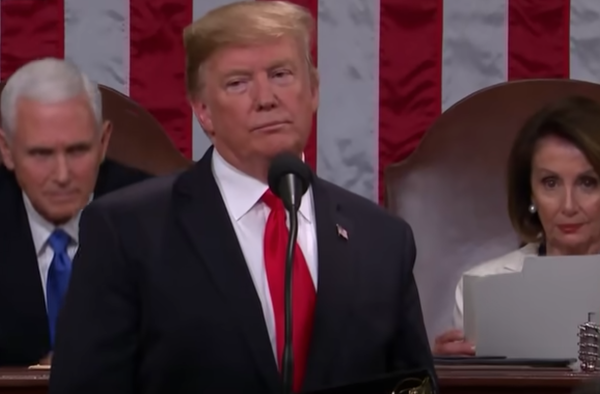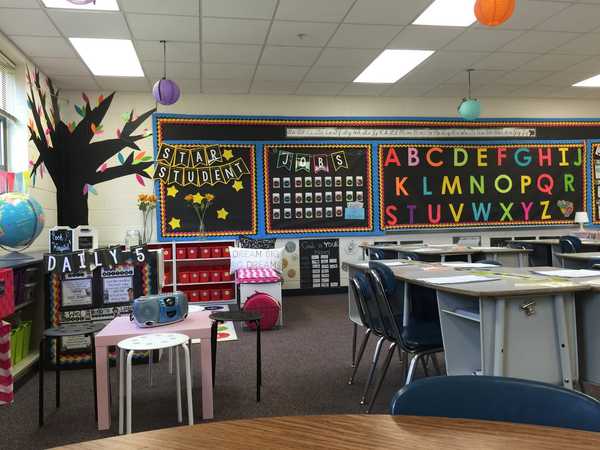On September 20, Hurricane Maria hit Puerto Rico. It was a worst case scenario as the center of the category 5 storm passed right over the island and brought wind and rain for more than 30 hours. It wiped out whatever infrastructure it would touch and left Puerto Rico decimated.
Opposed to popular belief Puerto Rico is not "an island sitting in the middle of the ocean,". It's just over a thousand miles from Miami. It's about as far as New York City is from St. Paul, Minnesota... If that means anything to anyone. But even if it was "an island sitting in the middle of the of the ocean" and even if it was "a big ocean" those people living there are American citizens. Almost three and a half million of them, and when the mayor of San Juan, Mayor Carmen Yulín Cruz, came on national television to beg for help a week after hurricane Trump responded by insulting her over Twitter. Puerto Rica has received aid from the mainland, but the administration has come under fire for their slow reaction time.
To put the issue in perspective let's go back to 2010, when Haiti was hit by an earthquake measuring 7.3 on the Richter Scale (7.3 out of 10 = really bad). Within hours of the earthquake, America deployed the aircraft carrier, USS Carl Vinson. A week later 10,000 of U.S. sailors and marines, 55,000 pounds of food and water and the hospital ship USNS Comfort had arrived at Port-au-Prince, the capital of Haiti. January 25, just 13 days after the earthquake, not even a full two weeks, the U.S. had given over $317 million in assistance to Haiti and about 17,000 U.S. military personnel were in and around Haiti.
Fast forward to fall of 2017 and the Defense Department announced that the USNS Comfort would be arriving in Puerto Rico on the 3 of October, two weeks and a day after Maria passed over the island. Three weeks after the hurricane Maria the House passed a bill that includes $18.7 billion for FEMA's disaster relief fund, $4.9 billion of that is for local governments to ensure the Peurto Rico can keep government programs going passed October 31 when their funds are projected to run out. This bill won't be voted on by the Senate until later this month.
Trump also waited a week and a day before putting someone, Lt. Gen. Jeffrey Buchanon in charge of overseeing the recovery and rebuilding of the island. Three weeks after the Maria 16% of islanders don't have electricity, 53% have mobile cellular service, and 64% have clean drinking water, though boiling water is still in effect. 5,742 people are in 108 shelters. 65 of 67 hospitals are open, which is a vast improvement, although only half of those hospitals are connected to the power grid while the rest rely on generators.
There are some confirmed reports of leptospirosis, a bacterial disease, and the governor of Peurto Rico Richardo Rossello, has said, multiple times, that he is afraid of the public health emergency brought on by hurricane Maria. A legitimate concern as the death toll continues to rise.
The lack of electricity on a majority of the island is expected to last for months. Because of Puerto Rico's economic situation, even before the hurricane, they could not invest in newer electricity, the island relies on old-fashioned power plants that burn oil. Two-thirds of their power comes from burning oil and is supplied by an electricity company called PREPA. This oil is mostly imported, which is difficult in for its own reason mentioned later on.
PREPA's power plants are still intact, but 80% of the transmission lines and power lines are gone, along with the roads that would carry the trucks that would carry the oil. The power plants are also on the southern end of the island, while most islanders live in the northern part, between the north and south lies dense forest and mountains. PREPA also relies on workers with extensive knowledge and since 2012 30% of these employees have retired or left to find better-paying jobs on the mainland. The electric company is on the verge of collapse with little to no personal to operate or repair it.
President Trump has had some... less than supportive things to say about Puerto Rico and the efforts to help get the island back on their feet, and many of his tweets are being contradicted by FEMA. On October 12 He tweeted "We cannot keep FEMA, the Military & the First Responders, who have been amazing (under the most difficult circumstances) in P.R. forever!" and just six house later on the same day Eileen Laines, official FEMA spokeswoman, tweeted "FEMA will be w/Puerto Rico, USVI, every state, territory impacted by a disaster every day, supporting throughout their response & recovery," . While FEMA, Federal Emergency Managment Agency, has been criticized for putting bureaucracy above helping Peurto Rico, at least they're not threatening to kick American citizens to the curb. Not openly at least.
The Jones act leads to another issue that Puerto Rico is facing, and has been facing for some time. Because Puerto Rico imports 84% of their food and basic necessities these products cost double what they would on the mainland. This has contributed to the high cost of living that has lead to 43% of those on the island living in poverty.
The economic issues that plague Puerto Rico go back to the 1960's and 70's, and aren't entirely all Puerto Rico's fault. Not long after it became a commonwealth, in 1952, CCangress enacted tax cuts that lead to companies setting up shop in Puerto Rico. But then around 1983 to 1986 Congress started taking back those tax cuts and the companies left in droves. Taking thousands of jobs with them.
Since the number of Puerto Ricans moving, not immigrating since they are American citizens, to the mainland has increased exponentially. The tax rate plummeted and Puerto Rico couldn't pay its bills.
So the next time Trump get's high and mighty remember that it was the American government that left Puerto Rico high and dry.
Before the disastrous hurricane season of 2017 Puerto Rico was $70 billion in debt, mostly to Wallstreet banks. In May of 2017, Puerto Rico declared a type of bankruptcy and in an attempt to pay back the debt they have been slashing money that should have been going to hospitals, schools, and roads. Basic infrastructure coming in second place to Wallstreet.
Wheather Puerto Rico would have been treated the way it has historically and recently, in reference to their debt crisis and hurricane relief, if they where a state instead of a territory. As a territory, Puerto Rico cannot vote in presidential elections, they have one congressional representative with extremely limited power, and while they don't pay federal income tax they do pay for Social Security, Medicare, and local taxes.
In June of 2017, Puerto Rico held a nonbinding election on whether or not they wanted statehood and overwhelmingly voted to become America's 51st state. Voter turnout was dishearteningly low, which really showed how disillusioned many Puerto Ricans are about becoming a state and the United States as a whole. And they were right because as much as the United States of America claims to care about its territories it did not recognize the vote. Probably because it doesn't want the debt is helped heap on the island and a Republican-run Congress doesn't what the Democratic voters a Puerto Rican state would promise.
When America was expanding westward many of the land taken where broken up and named territories that would later become states, like the Colorado Territory. But in 1901 the Insular Cases, a set of legal opinions regarding Puerto Rico and other territories, argued that they were occupied by "alien races" who couldn't understand "Anglo-Saxon principles." And from that, it was decided that for them, and the other territories, there was no path to statehood. It wasn't until 1917 that Puerto Ricans had any legal standing and as outrageous as that sounds it's better than some of the other American territories.
With the way our news cycle works Puerto Rico and their legitimate plea for help will soon go unheard. But the help they need won't go away, not anytime soon. And without pressure from the media and general public progress is likely to be even slower. As Americans, we pride ourselves as taking care of our own. So how about we act like Puerto Rico is one of us because they are and they need us now more than ever.



















